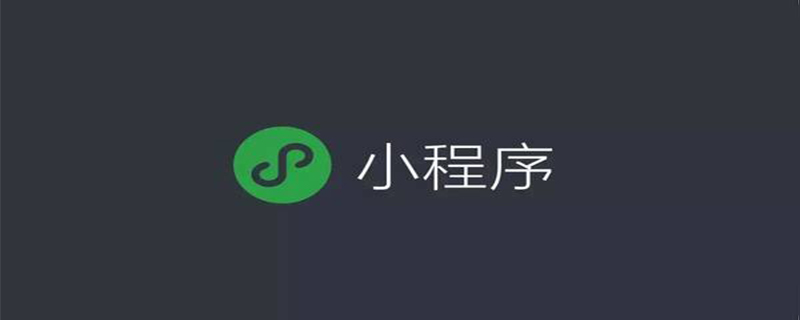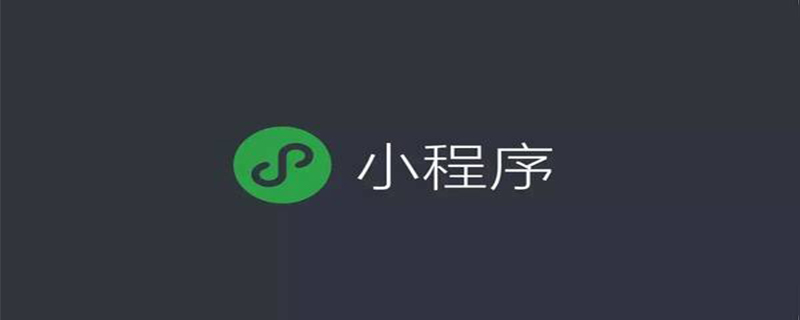 WeChat Applet
WeChat Applet Mini Program Development
Mini Program Development WeChat Mini Program WebSocket Protocol Description and Usage Example Sharing
WeChat Mini Program WebSocket Protocol Description and Usage Example SharingThis article describes the WeChat applet WebSocket protocol description and usage examples, using examples to help us quickly become familiar with and use it.
What is WebSocket (brief description)
WeChat’s WebSocket interface is basically the same as HTML5’s WebSocket. It is an upgrade from the HTTP protocol. As a new Socket, it is used in B/S Used on the Internet, it realizes full-duplex communication between the browser and the server.
Because this is a small program, I won’t explain too much about the underlying layer and protocol of WebSocket, just a brief introduction. If you want to know more about WebSocket, you can refer to the following:
WebSocket Protocol
Selection of WebSocket and Ajax
Before WebSocket came out, instant messaging was usually used Ajax is implemented, and Ajax obtains real-time data through polling. Polling is to perform HTTP requests to obtain data within a specified time interval. However, this method will cause some disadvantages. On the one hand, it will generate too many HTTP requests occupy bandwidth, increase the response of the server, and waste resources. On the other hand, because not every request will have data changes (just like a chat room), it will cause low utilization of requests.
WebSocket can just solve the above drawbacks. WebSocket establishes a channel between the client and the server. The request is only requested once, and the server's data can be obtained in real time from the same channel, so when applied to real-time applications When using WebSocket, WebSocket is a very good choice.
WebSocket protocol name
The WebSocket link does not start with http or https, but starts with ws and wss. You need to pay attention here.
Example: Real-time display of trading information
This is similar to viewing stock information in real time. The chart plug-in wxchart is used here.
wxchart plug-in address:
That’s basically it, let’s officially start.
Add stock page: 
Put wxchart.js into pages/stock/.
Modify stock.wxml: 
stock.js code:
// pages/stock/stock.js
//加载插件
var wxCharts = require('wxcharts.js');
Page({
data: {},
onLoad: function (options) {
//建立连接
wx.connectSocket({
url: "ws://localhost:12345",
})
//连接成功
wx.onSocketOpen(function() {
wx.sendSocketMessage({
data: 'stock',
})
})
//接收数据
wx.onSocketMessage(function(data) {
var objData = JSON.parse(data.data);
console.log(data);
new wxCharts({
canvasId: 'lineCanvas',//指定canvas的id
animation: false,
type: 'line',//类型是线形图
categories: ['2012', '2013', '2014', '2015', '2016', '2017'],
series: [{
name: '交易量',
data: objData,//websocket接收到的数据
format: function (val) {
if (typeof val == "string") {
val = parseFloat(val);
}
return val.toFixed(2) + '万元';
}
},
],
yAxis: {
title: '交易金额 (万元)',
format: function (val) {
return val.toFixed(2);
},
min: 0
},
width: 320,
height: 200
});
})
//连接失败
wx.onSocketError(function() {
console.log('websocket连接失败!');
})
},
})
The address of WebSocket here is ws://localhost, port It is 12345. After the connection is successful, stock is sent to the server, and then the server provides data information to the mini program.
I wrote the server side of WebSocket in PHP. I will post it here for your reference:
<?php
include 'WebSocket.php';
class WebSocket2 extends WebSocket{
public function run(){
while(true){
$socketArr = $this->sockets;
$write = NULL;
$except = NULL;
socket_select($socketArr, $write, $except, NULL);
foreach ($socketArr as $socket){
if ($socket == $this->master){
$client = socket_accept($this->master);
if ($client < 0){
$this->log("socket_accept() failed");
continue;
}else{
$this->connect($client);
}
}
else{
$this->log("----------New Frame Start-------");
$bytes = @socket_recv($socket,$buffer,2048,0);
if ($bytes == 0){
$this->disconnect($socket);
}else{
$user = $this->getUserBySocket($socket);
if (!$user->handshake){
$this->doHandShake($user, $buffer);
}else{
$buffer = $this->unwrap($user->socket, $buffer);
//请求为stock时,向通道内推送数据
if ($buffer == 'stock') {
$arr = array();
//模拟数据
for ($i=0; $i < 6; $i++) {
$arr[] = rand(1, 100) / 100;
}
$this->send($user->socket, json_encode($arr));
}
}
}
}
}
}
}
}
$s = new WebSocket2('localhost', 12345);
$s -> run();It is a little troublesome to write WebSocket in PHP. Those who know Node.js can write it in Node.js. Node.js is very convenient to write back-end WebSocket.
Example effect:

WeChat WebSocketAPI parameter description
##wx.connectSocket(OBJECT)
[tr] Required description of parameter type[/tr]
| String | is | The developer server interface address must be wss protocol, and the domain name must be the legal domain name configured in the background | |
| Object | No | Requested data | |
| Object | No | HTTP Header, Referer cannot be set in header | |
| String | No | The default is GET, valid values are: OPTIONS, GET, HEAD, POST, PUT , DELETE, TRACE, CONNECT | |
| Function | No | Callback function for successful interface call | |
| Function | No | Callback function for failure of interface call | |
| Function | No | The callback function at the end of the interface call (will be executed if the call is successful or failed) |
| data | String/ArrayBuffer | is | Content to be sent |
| success | Function | No | Callback function for successful interface call |
| fail | Function | No | Callback function for failure of interface call |
| complete | Function | No | The callback function at the end of the interface call (will be executed if the call is successful or failed) |
wx.onSocketMessage(CALLBACK)
Listen to the message event that WebSocket receives from the server.
[tr] Parameter type description[/tr]
| data | String/ArrayBuffer | Message returned by the server |
wx.closeSocket()
Close the WebSocket connection.
wx.onSocketClose(CALLBACK)
Listen to WebSocket closing.
About localhost
Here is a description of localhost. In the above code, I used the local request of localhost. This is just a placeholder. Localhost local requests are not supported in program writing. Here everyone Pay attention.
The above is the detailed content of WeChat Mini Program WebSocket Protocol Description and Usage Example Sharing. For more information, please follow other related articles on the PHP Chinese website!
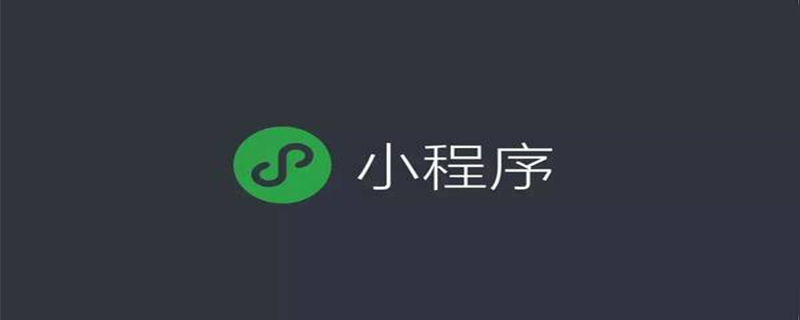 微信小程序架构原理基础详解Oct 11, 2022 pm 02:13 PM
微信小程序架构原理基础详解Oct 11, 2022 pm 02:13 PM本篇文章给大家带来了关于微信小程序的相关问题,其中主要介绍了关于基础架构原理的相关内容,其中包括了宿主环境、执行环境、小程序整体架构、运行机制、更新机制、数据通信机制等等内容,下面一起来看一下,希望对大家有帮助。
 微信小程序云服务配置详解May 27, 2022 am 11:53 AM
微信小程序云服务配置详解May 27, 2022 am 11:53 AM本篇文章给大家带来了关于微信小程序的相关知识,其中主要介绍了关于云服务的配置详解,包括了创建使用云开发项目、搭建云环境、测试云服务等等内容,下面一起来看一下,希望对大家有帮助。
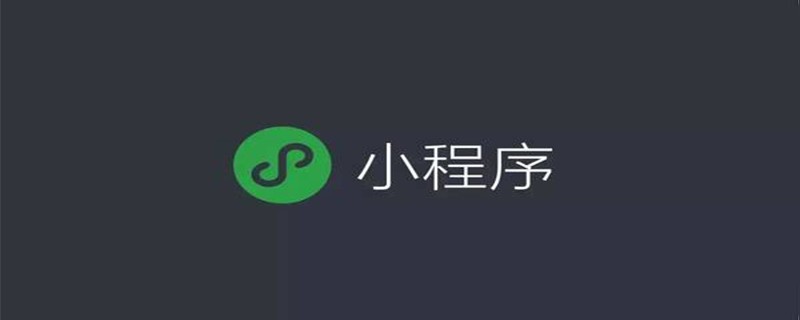 微信小程序实战项目之富文本编辑器实现Oct 08, 2022 pm 05:51 PM
微信小程序实战项目之富文本编辑器实现Oct 08, 2022 pm 05:51 PM本篇文章给大家带来了关于微信小程序的相关知识,其中主要介绍了关于富文本编辑器的实战示例,包括了创建发布页面、实现基本布局、实现编辑区操作栏的功能等内容,下面一起来看一下,希望对大家有帮助。
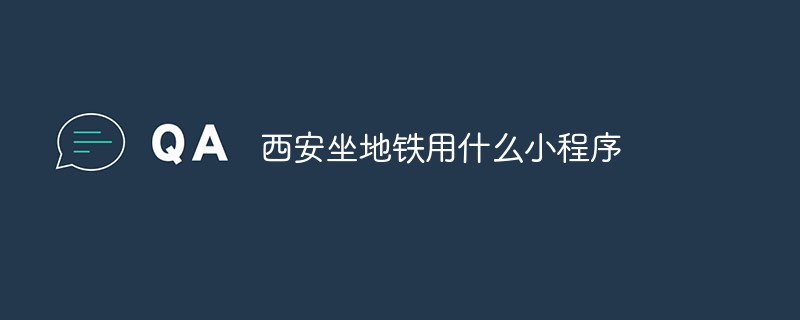 西安坐地铁用什么小程序Nov 17, 2022 am 11:37 AM
西安坐地铁用什么小程序Nov 17, 2022 am 11:37 AM西安坐地铁用的小程序为“乘车码”。使用方法:1、打开手机微信客户端,点击“发现”中的“小程序”;2、在搜索栏中输入“乘车码”进行搜索;3、直接定位城市西安,或者搜索西安,点击“西安地铁乘车码”选项的“去乘车”按钮;4、根据腾讯官方提示进行授权,开通“乘车码”业务即可利用该小程序提供的二维码来支付乘车了。
 简单介绍:实现小程序授权登录功能Nov 07, 2022 pm 05:32 PM
简单介绍:实现小程序授权登录功能Nov 07, 2022 pm 05:32 PM本篇文章给大家带来了关于微信小程序的相关知识,其中主要介绍了怎么实现小程序授权登录功能的相关内容,下面一起来看一下,希望对大家有帮助。
 微信小程序开发工具介绍Oct 08, 2022 pm 04:47 PM
微信小程序开发工具介绍Oct 08, 2022 pm 04:47 PM本篇文章给大家带来了关于微信小程序的相关问题,其中主要介绍了关于开发工具介绍的相关内容,包括了下载开发工具以及编辑器总结等内容,下面一起来看一下,希望对大家有帮助。


Hot AI Tools

Undresser.AI Undress
AI-powered app for creating realistic nude photos

AI Clothes Remover
Online AI tool for removing clothes from photos.

Undress AI Tool
Undress images for free

Clothoff.io
AI clothes remover

AI Hentai Generator
Generate AI Hentai for free.

Hot Article

Hot Tools

Safe Exam Browser
Safe Exam Browser is a secure browser environment for taking online exams securely. This software turns any computer into a secure workstation. It controls access to any utility and prevents students from using unauthorized resources.

SecLists
SecLists is the ultimate security tester's companion. It is a collection of various types of lists that are frequently used during security assessments, all in one place. SecLists helps make security testing more efficient and productive by conveniently providing all the lists a security tester might need. List types include usernames, passwords, URLs, fuzzing payloads, sensitive data patterns, web shells, and more. The tester can simply pull this repository onto a new test machine and he will have access to every type of list he needs.

SublimeText3 Mac version
God-level code editing software (SublimeText3)

ZendStudio 13.5.1 Mac
Powerful PHP integrated development environment

SublimeText3 English version
Recommended: Win version, supports code prompts!




